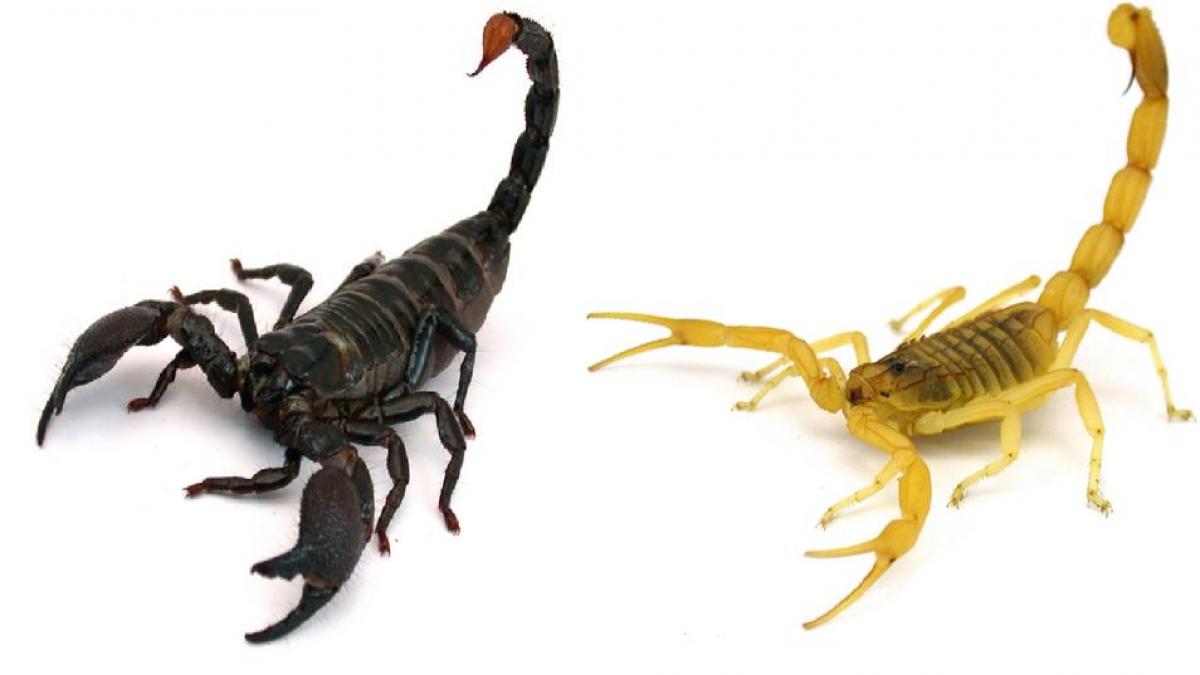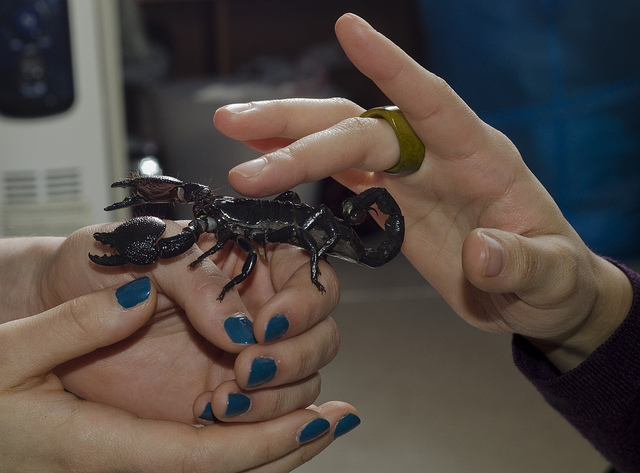Indiana Jones mentioned it in a movie once. Is it true, are small scorpions more lethal? Irish scientists wanted to find out. A team from NUI Galway’s Ryan Institute put this argument to the test. So they analyzed 36 species of scorpions. What did they find?

Much stronger
The results of the research have been published in the international journal Toxins. They studied small scorpions in their analysis, such as the Brazilian yellow scorpion. They turned out to be more than 100 times more potent than larger species.
The pattern of potency also referred to the size of the pincers. In species with smaller pincers it is much more potent.
Kevin Healy is Professor of Zoology at NUI Galway and lead author of the study. He says in a statement that “there are good evolutionary reasons to expect such patterns.”
Scorpions use both their venomous stinger and their pincers to capture prey and to defend themselves. But there is an evolutionary trade-off between these weapons. The energy used to make larger pincers means that less energy is available for their chemical arsenal. Larger scorpions that can use their physical size rely less on poisons. Smaller species have evolved more potent poisons.

Medical treatment
Scorpion bites are a worldwide health problem. There are more than 1 million cases and thousands of deaths each year. Identifying the species involved in a sting is vital for treatment. Knowing that smaller scorpions are more lethal helps in choosing the best response.
“As scientists, our job is also to test popular wisdom. Most hospitalized victims with severe symptoms after scorpion stings are children under 15 years of age. Identifying the species responsible is essential to administering the correct treatment. There is a simple rule: ‘the bigger the better’. It’s a small first step to saving lives.”

